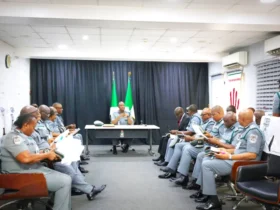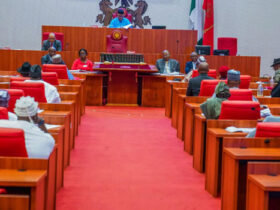Following the Supreme Court’s verdict mandating that Nnamdi Kanu face trial, a Senior Advocate of Nigeria (SAN) Paul Ananaba says the apex court had the power to grant bail to the leader of the Indigenous People of Biafra (IPOB).
An appeal court had dismissed charges against the IPOB leader but the Federal Government challenged the judgement with the Supreme Court on Friday ruling that Kanu should face trial.
But speaking on Channels Television’s Politics Today on Friday, Ananaba said the public had high hopes that Nnamdi Kanu would be released and said the apex court could have done so.
“I believe the Supreme Court had all the inherent powers to take any decision in the best interest of the country,” Ananaba said.
“My expectations would have been that, having found out that the way the arrest was done wasn’t approved by the Supreme Court, having found that the invasion of Kanu’s residence and all that wasn’t acceptable, I had expected that Nnamdi Kanu should stand his trial, but the Supreme Court also had the right and the powers to have granted him bail on some certain conditions.
“When the Supreme Court had found that that bail was wrongly revoked, I believe the Supreme Court would have made a consequential order in that order that ‘that bail be restored’.”
While recognising the Supreme Court’s assertion that Kanu should face trial at the Federal High Court, Ananaba believes that having found faults in the government’s handling of the case, the apex court could have exercised its right to grant bail under certain conditions.
“I believe the Supreme Court would have made a consequential order in that order that ‘that bail be restored’ when the Supreme Court had found that that bail was wrongly revoked,” he restated.
However, the Professor of Law urged Nigerians to respect the decisions of the Supreme Court.
The court, in its judgement, delivered by Justice Emmanuel Agim, stated that the Court of Appeal was wrong to rule that Kanu could not be retried based on the government’s alleged illegality during his arrest and the invasion of his home.
Addressing Kanu’s absence in court during the judgement, the Supreme Court maintained that the Nigerian government’s actions, though deemed reckless and unlawful, do not strip the courts of the power to proceed with the trial for alleged criminal charges.
The proscribed IPOB leader has been in detention since June 2021 facing charges including treasonable felony and terrorism.









Leave a Reply